
Trellix Global Defenders: Analysis and Protections for BlackByte Ransomware
By Taylor Mullins · February 28, 2022
BlackByte Ransomware has been in the news of late due to a successful attack against a National Football League (NFL) Franchise and a Joint Cybersecurity Advisory by the Federal Bureau of Investigation (FBI) and the U.S. Secret Service (USSS) warning on breaches to the networks of at least three organizations from US critical infrastructure sectors in the last three months. BlackByte Ransomware is currently being offered to threat actors as a Ransomware-as-a-Service (RaaS) and makes use of PowerShell and Windows CLI commands to carry out various tasks such as network discovery, task scheduling and to create and disable Windows and security services.
BlackByte Ransomware makes files inaccessible by encrypting them and generates a ransom note (the "BlackByte_restoremyfiles.hta" file) that contains instructions on how to contact the attackers for data decryption and other details. Also, BlackByte appends the ".blackbyte" extension to the names of encrypted files. BlackByte does have worming capabilities and can infect additional endpoints on the same network.
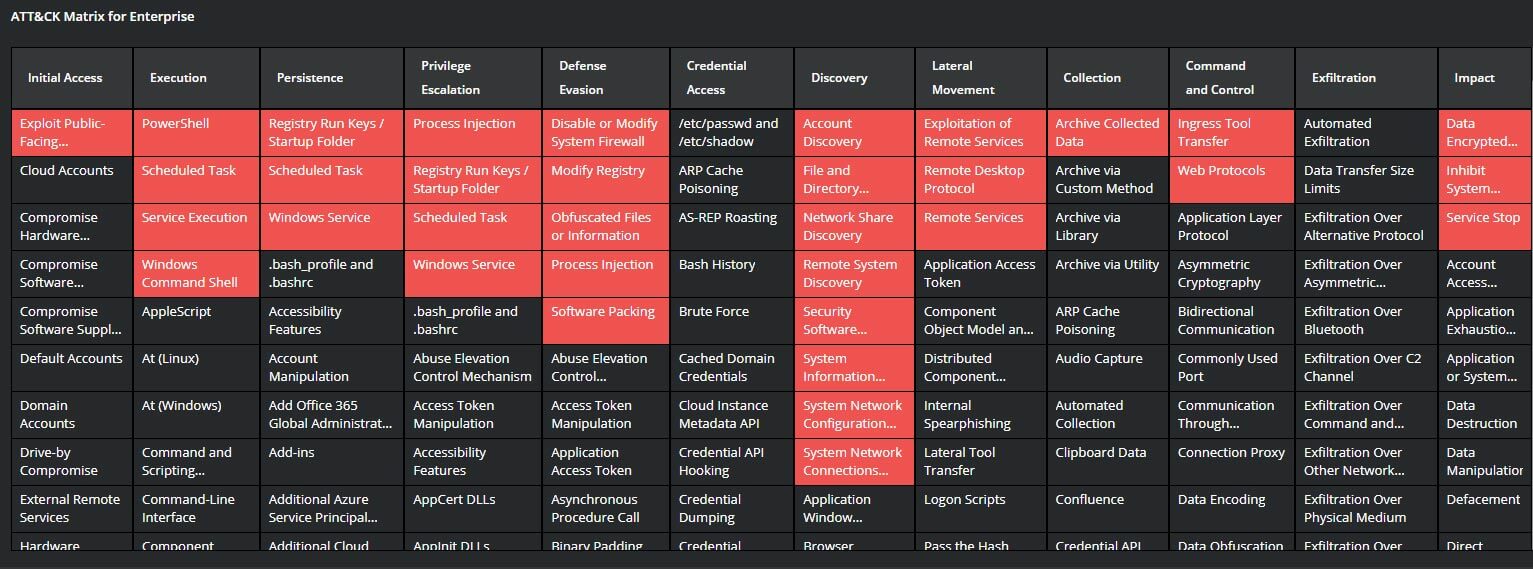
Recommended Steps to Prevent Initial Access
The Joint Cybersecurity Advisory provides several recommendations to secure your environment against BlackByte that were gathered from their analysis of malware samples discovered in the wild.
- BlackByte operators have been observed exploiting the following CVEs to gain initial access, patching is recommended to prevent exploitation.
- CVE-2021-34473 - Microsoft Exchange Server Remote Code Execution Vulnerability
- CVE-2021-34523 - Microsoft Exchange Server Elevation of Privilege Vulnerability
- CVE-2021-31207 - Microsoft Exchange Server Security Feature Bypass Vulnerability
- Blocking IP Addresses known to download additional payloads in BlackByte attacks prior to encryption: 185.93.6.31 and 45.9.148.114.
- Disable unused remote access/Remote Desktop Protocol (RDP) ports and monitor remote access/RDP logs for any unusual activity.
- After gaining access to the service accounts some adversaries have utilized AnyDesk for lateral movement, monitoring for AnyDesk activity can be an early indicator of compromise if AnyDesk is not utilized or allowed by your organization.
- Review domain controllers, servers, workstations, and active directories for new or unrecognized user accounts.
- Disable hyperlinks in received emails.
Joint Cybersecurity Advisory: Indicators of Compromise Associated with BlackByte Ransomware
Trellix Protections and Global Detections
Trellix Global Threat Intelligence is currently detecting all known analyzed indicators for this campaign.
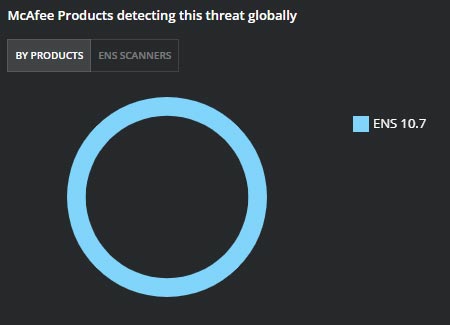
Blocking BlackByte Attacks with Endpoint Security
Trellix ENS is currently detecting BlackByte Indicators of Compromise (IOCs) from the standpoint of signature detections and the malware behavior associated with BlackByte Ransomware attacks. The following Exploit Prevention Rule in ENS has shown success in stopping BlackByte samples due to BlackByte being Script-based. Trellix always recommends testing in Report Only Mode before blocking to confirm no false positives are being detected by this signature rule.
Exploit Prevention Signature ID 6207: ASR : File Download attempt by Scripts
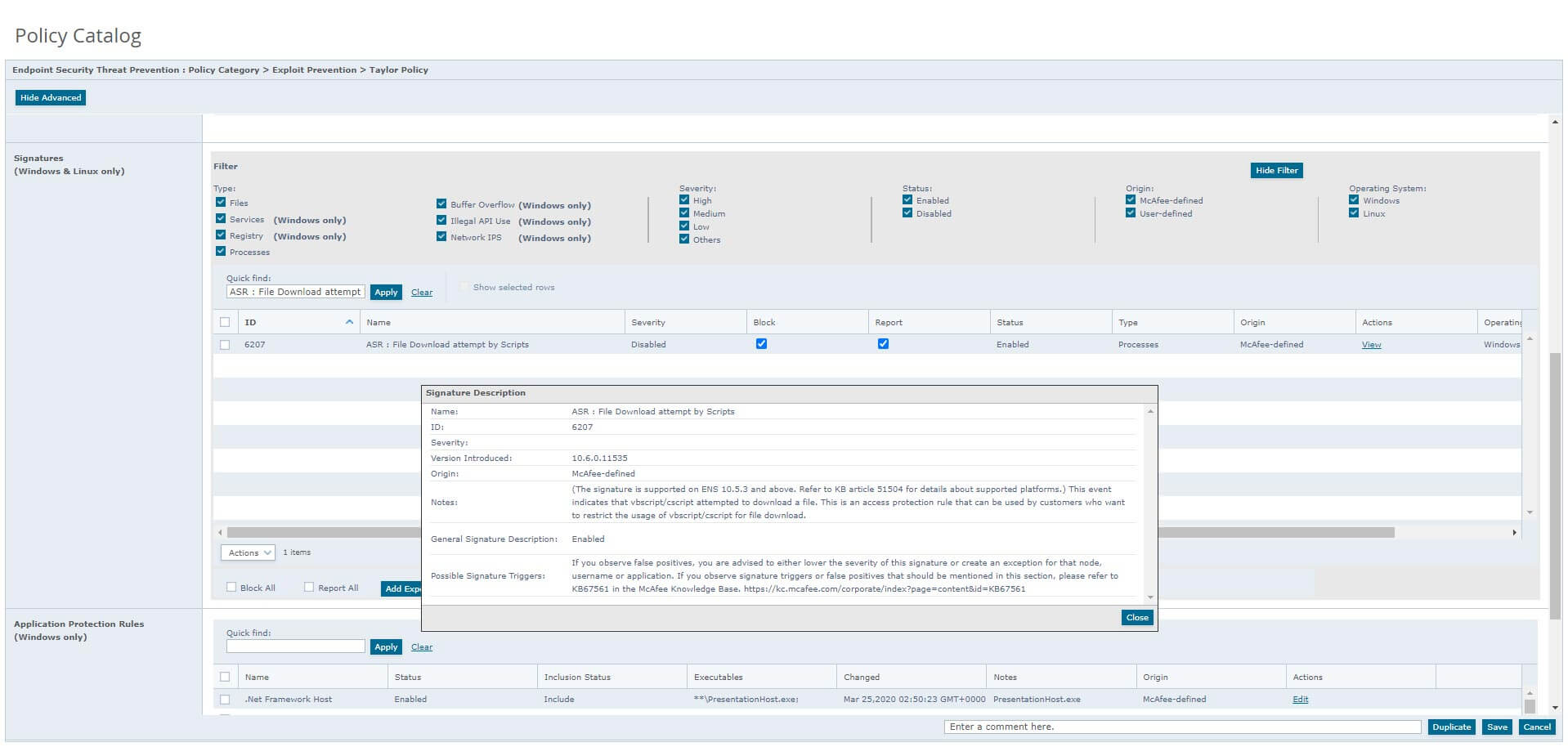
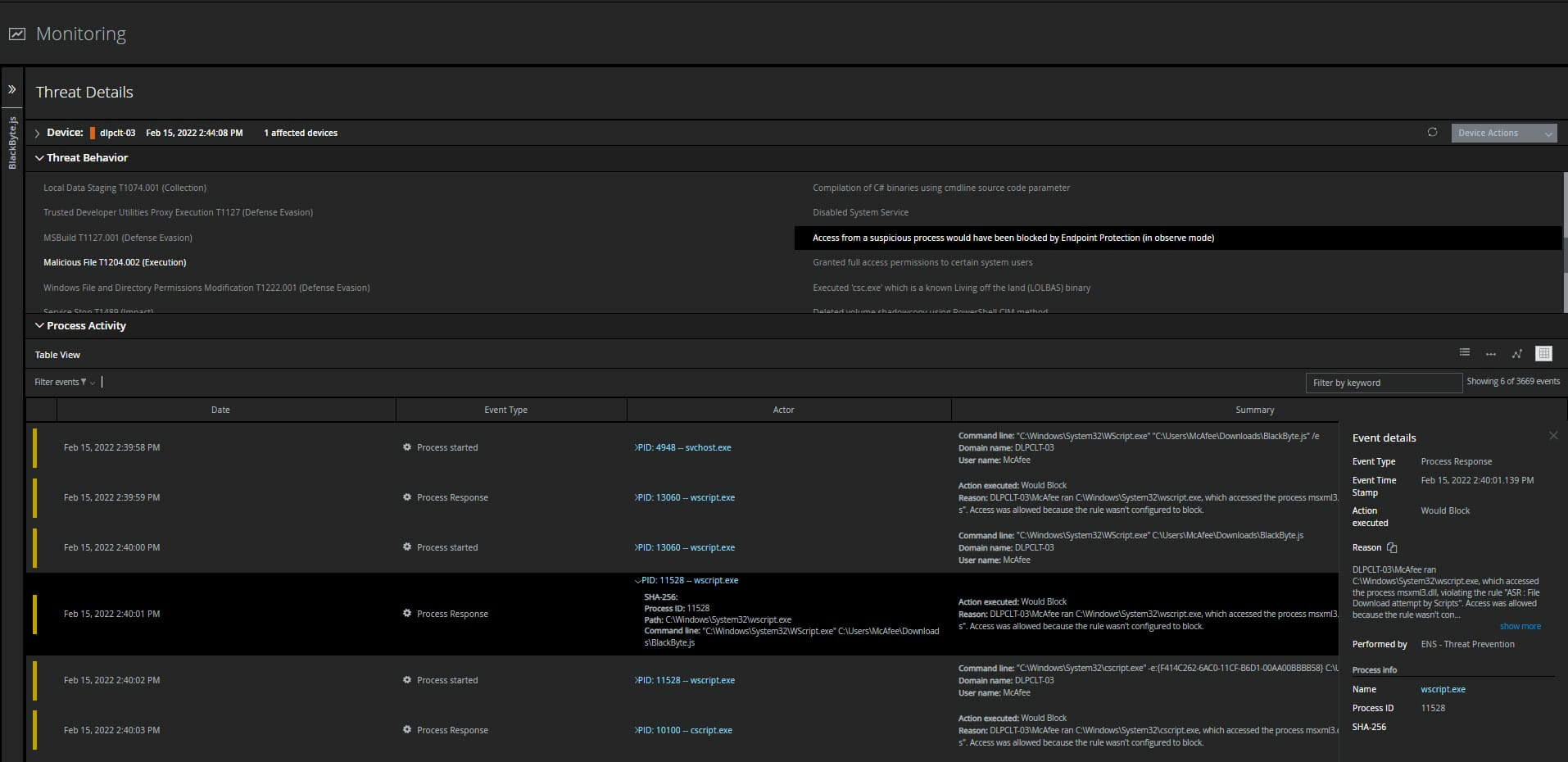

BlackByte Threat Intelligence from the Trellix Advanced Threat Research Team and MVISION Insights
MVISION Insights will provide the current threat intelligence and known indicators for BlackByte Ransomware. MVISION Insights will alert to detections and Process Traces that have been observed and systems that require additional attention to prevent widespread infection. MVISION Insights will also include Hunting Rules for threat hunting and further intelligence gathering of the threat activity and adversary.
MVISION Insights Campaign Names: Cybersecurity Advisory - BlackByte Ransomware and JavaScript Malware Threat Landscape
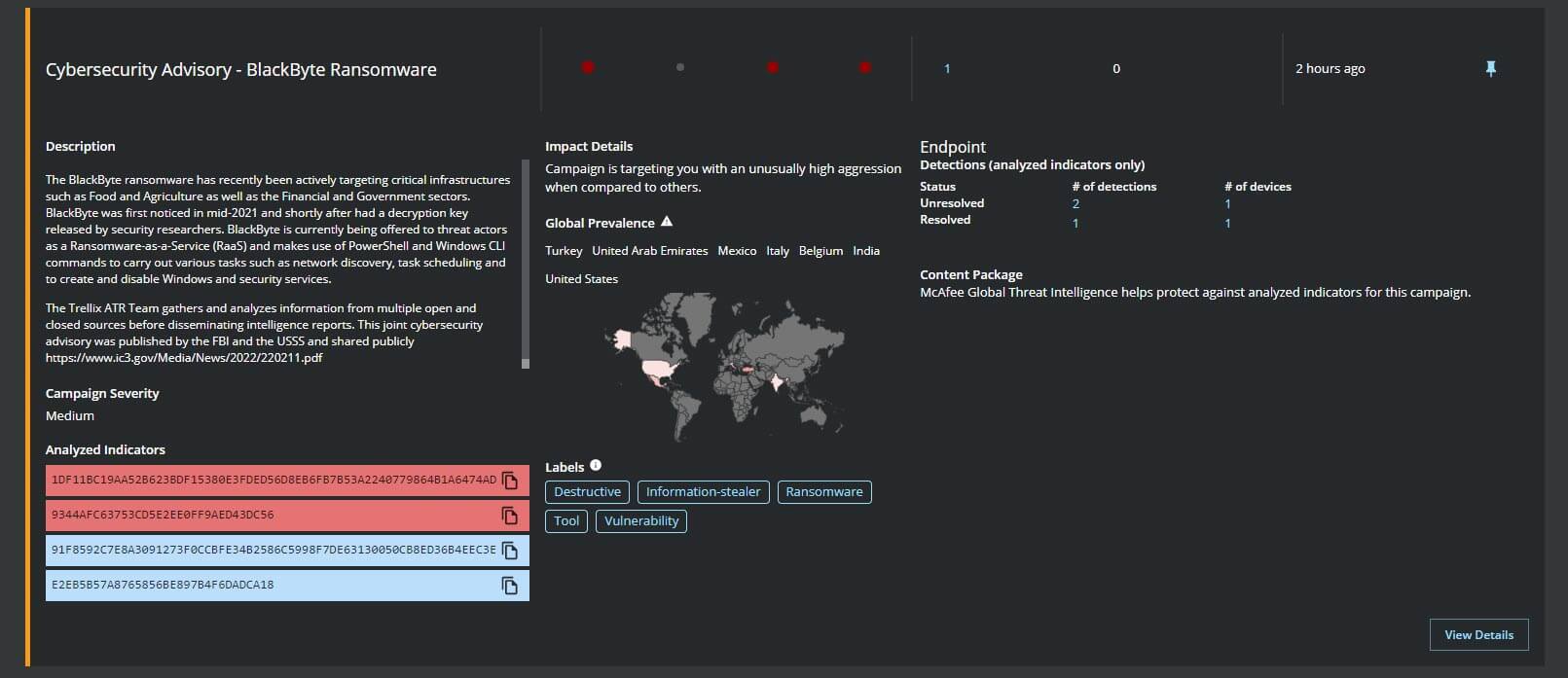
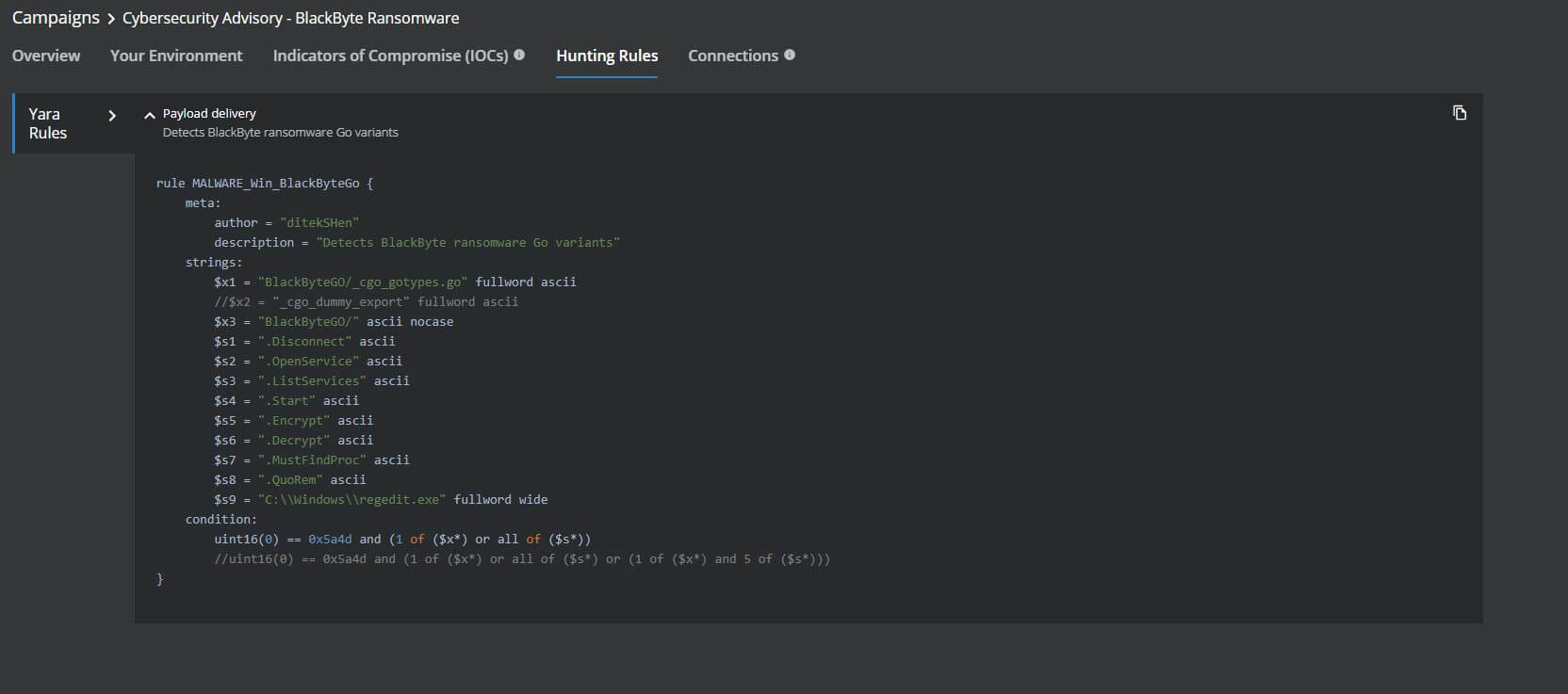
Detecting Malicious Activity with MVISION EDR
MVISION EDR is currently monitoring for the activity associated with BlackByte Ransomware and will note the MITRE techniques and any suspicious indicators related to the adversarial activity. Several of the techniques outlined in the Joint Advisory that are observed with BlackByte are noted below, monitoring for this type of activity can point to activity associated with the Tactics, techniques, and procedures (TTPs) for BlackByte.
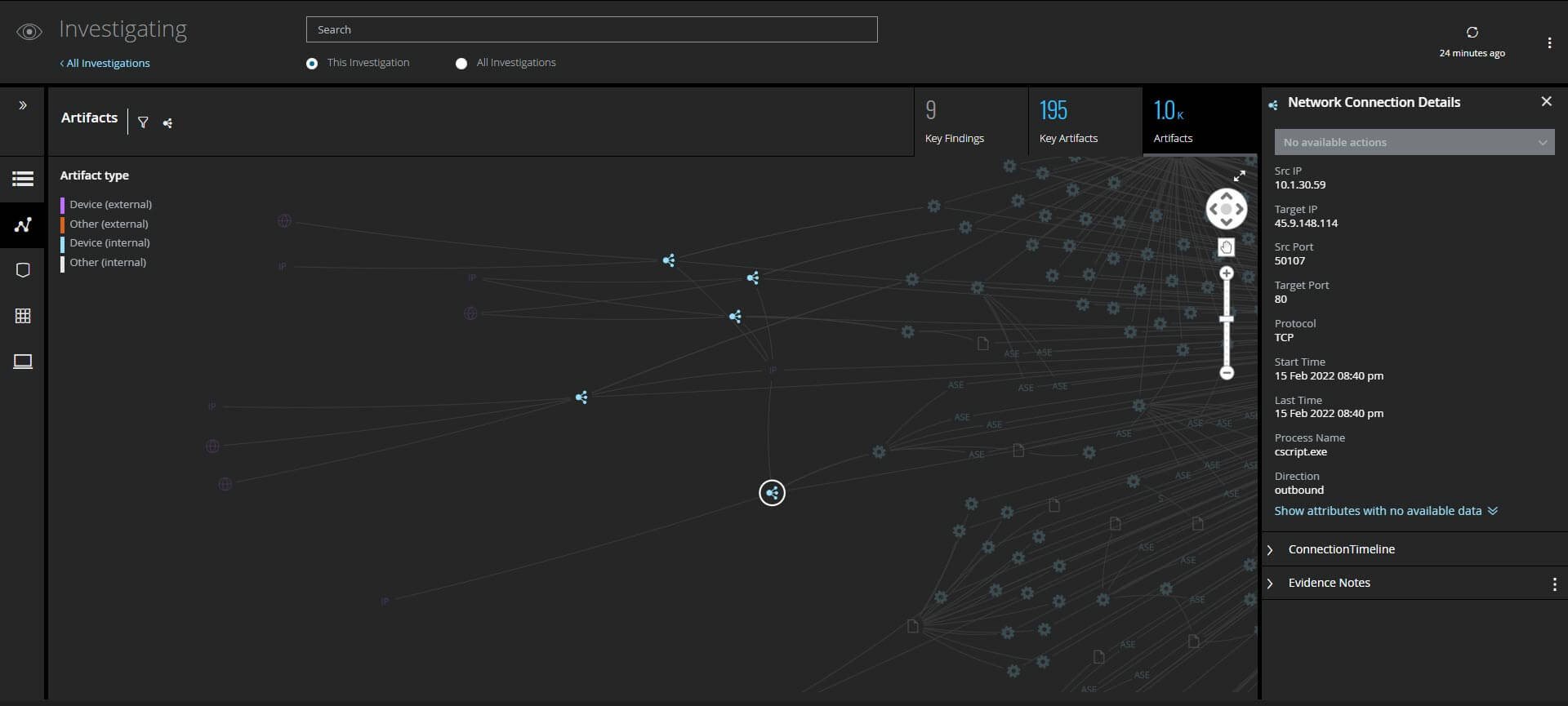
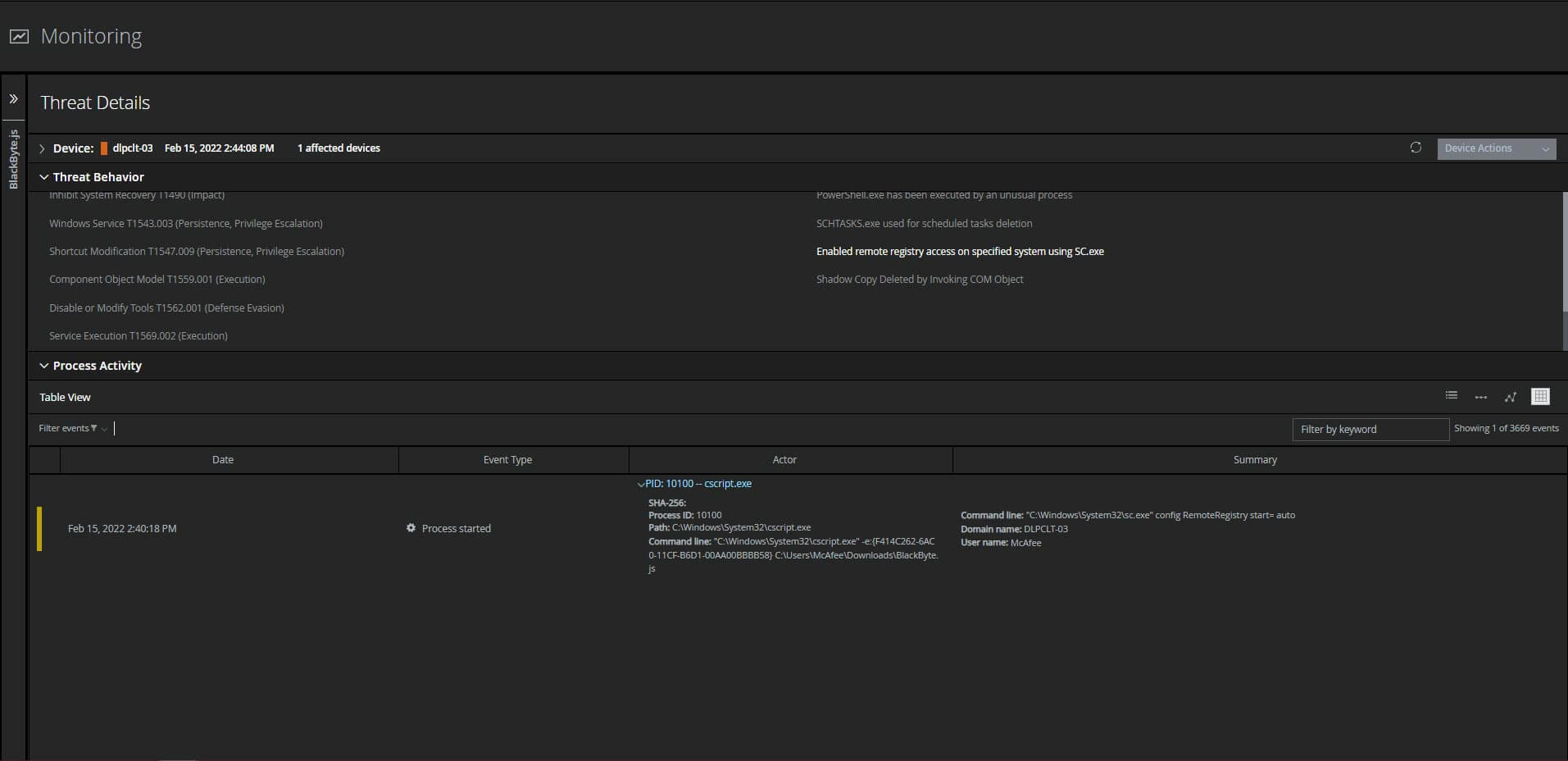
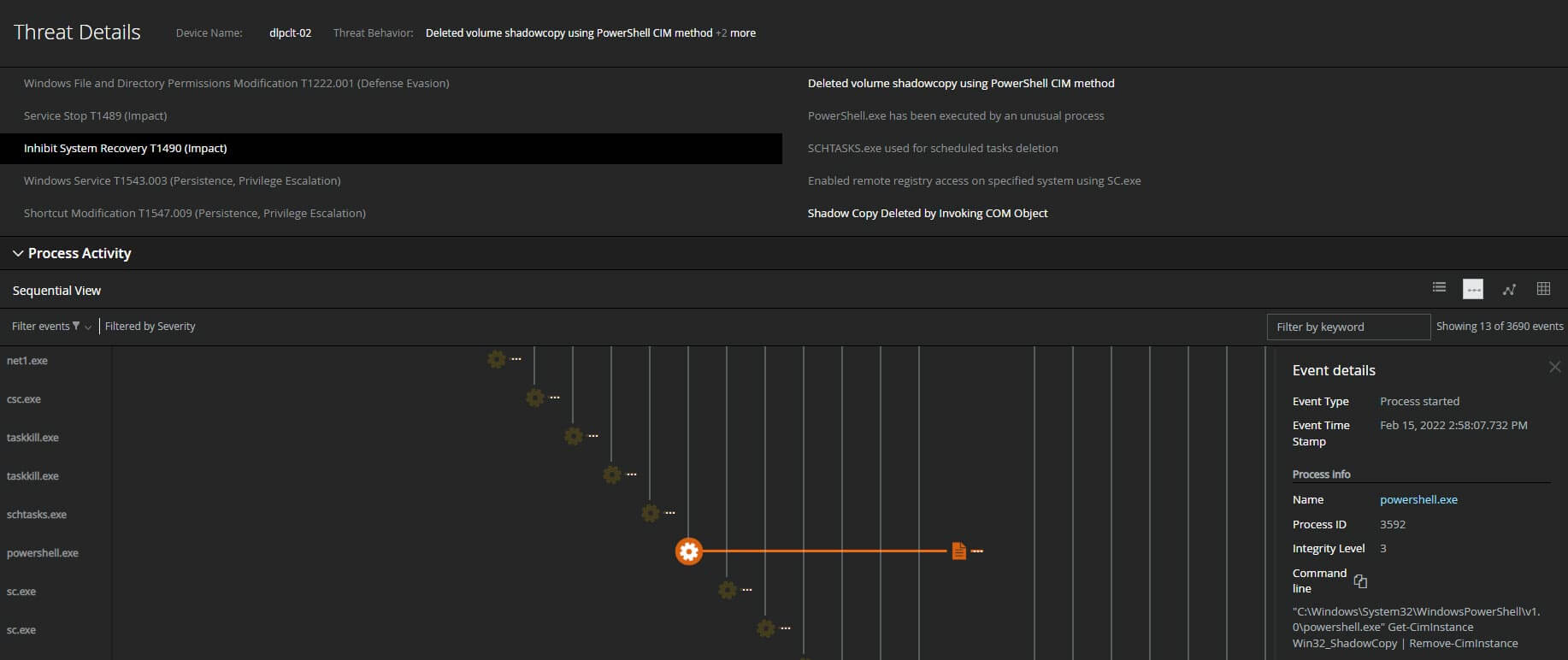
Trellix offers Threat Intelligence Briefings along with Cloud Security and Data Protection workshops to provide customers with best practice recommendations on how to utilize their existing security controls to protect against adversarial and insider threats, please reach out if you would like to schedule a workshop with your organization.
RECENT NEWS
-
Jun 17, 2025
Trellix Accelerates Organizational Cyber Resilience with Deepened AWS Integrations
-
Jun 10, 2025
Trellix Finds Threat Intelligence Gap Calls for Proactive Cybersecurity Strategy Implementation
-
May 12, 2025
CRN Recognizes Trellix Partner Program with 2025 Women of the Channel List
-
Apr 29, 2025
Trellix Details Surge in Cyber Activity Targeting United States, Telecom
-
Apr 29, 2025
Trellix Advances Intelligent Data Security to Combat Insider Threats and Enable Compliance
RECENT STORIES
Latest from our newsroom
Get the latest
Stay up to date with the latest cybersecurity trends, best practices, security vulnerabilities, and so much more.
Zero spam. Unsubscribe at any time.